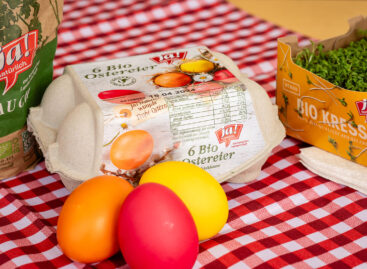That is why pasta is 82 percent more expensive in Hungarian stores than in Austrian ones
A Hungarian vlogger on TikTok recently demonstrated that while the own-brand pasta of a supermarket costs HUF 1,190 here, the same pasta costs 1 euro 49 cents in Austria, i.e. approx. for HUF 570. But what could be the reason for the difference? The question is extremely complex.
 The increase in logistics costs
The increase in logistics costs
The domestically available pasta is also produced in Austria, so the product has to be shipped here from there, and the logistics costs have increased considerably.
Different tax burdens
There are also different tax burdens in the countries, but these components alone should not increase the price of the domestic product by more than 80 percent compared to the Austrian one. At this point, the special Hungarian retail tax can also come into play.
The negative effect of price caps
but also the negative effect of price caps, that large store chains will certainly mitigate their losses from price freezes by spreading them over other products, i.e. by making them more expensive.
“Be that as it may, the pasta in question is currently more than 80 (!) percent more expensive in Hungary than in Austria. While in Austria, the average net salary is around 800,000 forints, and in Hungary it is around 340,000 forints. So 1,404 of their money there pieces of pasta, i.e. 1.4 tonnes. While at home, the average domestic wage is 328 kilos, i.e. just over 3 mazas”
– sums up the essence of the Money Center.
Related news
Billa Pledges Fully Austrian Egg Supply For Easter
🎧 Hallgasd a cikket: Lejátszás Szünet Folytatás Leállítás Nyelv: Auto…
Read more >Austria to Label “Shrinkflation” Starting in April
🎧 Hallgasd a cikket: Lejátszás Szünet Folytatás Leállítás Nyelv: Auto…
Read more >Inflation has dropped significantly, a cycle of interest rate cuts may begin, while gold soars
🎧 Hallgasd a cikket: Lejátszás Szünet Folytatás Leállítás Nyelv: Auto…
Read more >Related news
Shape the future, in other words: build a brand!
🎧 Hallgasd a cikket: Lejátszás Szünet Folytatás Leállítás Nyelv: Auto…
Read more >MBH Analysis Center: The Hungarian economy may accelerate again in 2026, but the Iranian war carries serious risks
🎧 Hallgasd a cikket: Lejátszás Szünet Folytatás Leállítás Nyelv: Auto…
Read more >SPAR is preparing for an Easter rush: it is filling its stores with 570 tons of smoked meat products
🎧 Hallgasd a cikket: Lejátszás Szünet Folytatás Leállítás Nyelv: Auto…
Read more >








